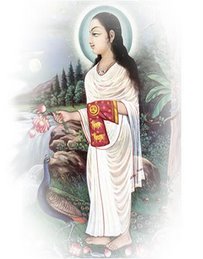Gist of Bhagwat Gita
Chapter I
"It is because of worldly delusion that a man finds himself in a dilemma of what to do and what not to do. Being entangled in this dilemma he loses his sense of duty. Therefore he should not be overpowered by delusion or attachment to pleasure"
Chapter II
"The body is perishable while the knower of this fact i.e. the Self (Soul) is imperishable.
- Attaching importance to this discrimination and/or
- selfless performance of one's duty
- by adopting any one of these two means, worry and grief are wiped out in the life of man."
Chapter III
"Only prompt performance of one's duty, without any interested motive, for the welfare of others, leads to salvation"
Chapter IV
"There are two methods to be free from the bondage of action - (1) performance of action selflessly having known the truth about actions and/or realisation of the self."
Chapter V
"A man should not be happy and sad in favourable and unfavourable circumstances because such a man (who is happy and sad) cannot rise above the mundane existence and experience the Supreme Bliss."
Chapter VI
"A man should attain equanimity (even mindedness) by any spiritual discipline. Without equanimity he cannot be totally flawless [without change in state]."
Chapter VII
"All is only God. Acceptance of this fact is the best spiritual discipline."
Chapter VIII
"Whatever a being thinks of at the time of death, he gets the same form of rebirth. Therefore, a man should always think of God even while performing all his worldly duties, so that the thought of God persists at the time of death."
Chapter IX
"All persons are entitled to realise God, no matter what caste, creed, community, country, colour, stage of life, etc. they belong to."
Chapter X
"In the world whatever exception, singularity, speciality, beauty, glory, importance, intellect, talent, power, etc. is perceived, by regarding everything as God's only He should be thought of."
Chapter XI
"By regarding the world as the manifestation of God, every person can view/ the cosmic form of God."
Chapter XII
"The devotee who dedicates himself with his body, senses, mind and intellect to God, is dear to Him."
Chapter XIII
"In the world only the essence of God is worth to be known. Having known Him, immortality is attained."
Chapter XIV
"In order to be free from the bondage of the world, it is necessary to transcend the three gunas (modes of nature) - Sattva (Goodness), Rajas (Passion) and Tama (Ignorance). A man transcends these three by exclusive devotion."
Chapter XV
"The existence of the world is based on God and God is the Supreme Being in the world. We should accept this fact and exclusively worship Him."
Chapter XVI
"It is only due to a man's evil deeds and misconduct, that he goes to and experiences the eighty four lac species of life and hell, and thus suffers. Therefore, to be free from the cycle of birth and death, it is necessary to give up one's evil deeds and misconduct."
Chapter XVII
"A man should remember God and take His name before starting any good work that he does with respect and faith."
Chapter XVIII
"The gist of all the scriptures are contained in the Vedas, the gist of all the Vedas are contained in the Upanishads, gist of all the Upanishads is contained in the Gita, and the gist of the Gita is take complete refuge in God. Surrender yourself completely to Him. He who surrenders himself exclusively to God, is liberated from all sins by God."



.jpg)